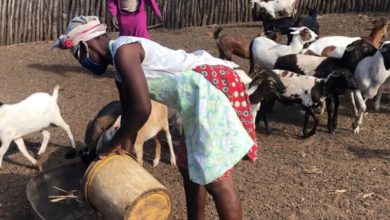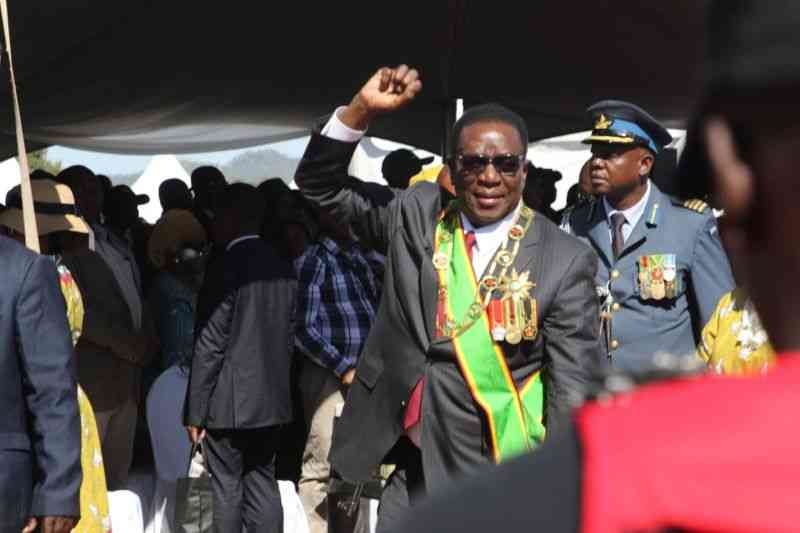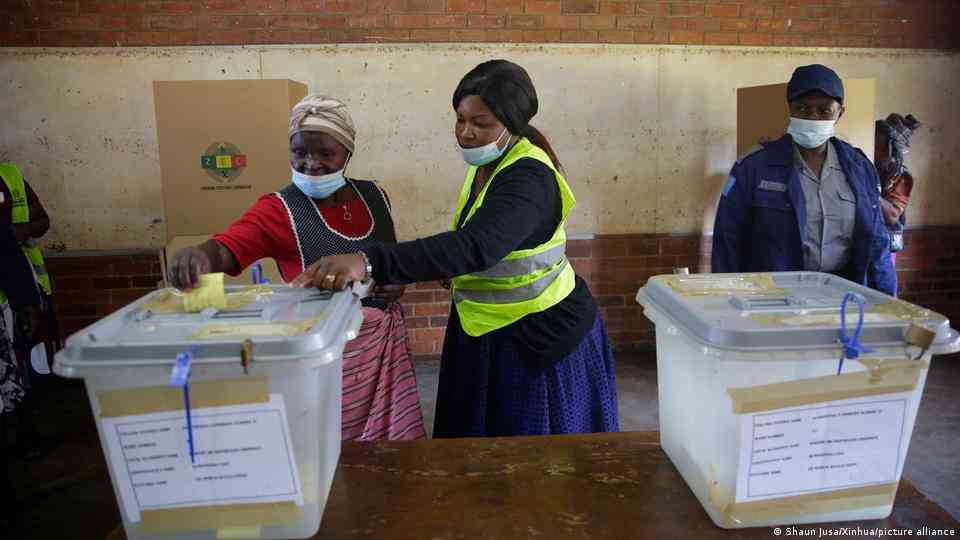
BY LORRAINE MUROMO
My Life has drastically changed and I am a happy old woman since the coming in of this project through the Zimbabwe Resilience Building Fund (ZRBF).
“Now there is something to do, I am motivated to wake up every morning and work,” said a smiling 73-year-old Daisy Mlalazi.
This is but one of the many motivating stories of how ZRBF has changed and impacted the lives of the old and poor in the often forgotten, arid and barren lands of Matabeleland.
The ZRBF is a multi-donor fund working with over 830 000 small-scale farmers in 18 vulnerable districts. Under the project, communities are empowered to start self-help agricultural projects.
A member of the Mbembeswana Livestock Centre which is being spearheaded by ZRBF under the Sizimele project in Matabeleland South, Mlalazi said the livestock project helps her pay her medical bills and other day-to-day expenses.
According to Mlalazi, the project has helped break the barriers of patriarchy that has been hindering women in Matabeleland from owning livestock and actively participating in developmental processes.
“I survive on pills and these require US dollars and because of this project I am able to afford and access them,” said Mlalazi.
- Chamisa under fire over US$120K donation
- Mavhunga puts DeMbare into Chibuku quarterfinals
- Pension funds bet on Cabora Bassa oilfields
- Councils defy govt fire tender directive
Keep Reading
“The vegetable and mushroom project has also greatly helped with income generation. This project with the aid of Sizimele has helped us as women to be able to financially cater for ourselves. I am now a proud owner of cattle that I can call my own. I even participated in the feeding of the cattle which was not very acceptable in the past years.”
Her younger sister, Joyce added: “We are no longer dependent on other people as we are able to generate our own income. Even if you look at us, our lifestyle and physical well-being has changed a lot.
“The money helps us to educate our children, buy food, clothes and other necessities. The success has even got to the level where we are also able to employ helpers.”
Not only has ZRBF brought joy to Matabeleland South, the success stories are similar in areas like Majiji in Matabeleland North where one of ZRBF’s consortiums Melana has set up a seed bank for the community.
An excited beneficiary Nonhlanhla Dube expressed gratitude to ZRBF as the seed bank has helped her meet her food security needs.
“The seed bank has greatly helped us to provide food for our families. Before the seed bank, we had the challenge of being delayed in planting. There is now reduction in generic erosion, we get to preserve some seeds that were going into extinction,” Dube said.
Oppah Ngwenya added: “Our farming has improved greatly and we now see beyond our poor circumstances. We were trained in many ways of farming such as Pfumvudza and it has helped us provide food to our homes. ”
Another beneficiary of the project, Savie Sibanda said that the advent of the seed bank had provided them with information that they lacked before.
“We now know of early planting, there is now reduced hunger in households. The seed bank has also helped to promote education to our farmers. The seedbank has become a centre of knowledge where there are trainings on improved farming.”
Florence Singo from Ntobi village, an entrepreneur and cooking oil manufacturer in her village also expressed her gratitude.
“There are now many projects we are engaged in and those make us able to send our children to school, pay fees among many other necessities.”
ZRBF Sizimele spokesperson Patience Ukama said they were excited to see the impact their projects were having on communities.
“In terms of our projects as Sizimele, we want to ensure that people live with dignity and we are very delighted that the projects we are in are having a positive impact on communities,” Ukama said.
“As ZRBF, we are realising that global agreements such as COP26 will not eliminate the immediate shocks of climate change for poorer countries like Zimbabwe and more so for poorer communities.”
ZRBF Melana projects co-ordinator Edison Dhlakama said they were happy with the seeding concept before revealing plans to set up similar projects across the country.
“The burden of farmers having to travel long distances has been reduced. For example it is about 140km from Bulawayo to Majiji, so in terms of availability of seed, we can score a point. We intend to have one seed bank per district,”said Dhlakama.
“The seed bank has been producing good quality seed and farmers can quickly access the seed and spend less time travelling. The seed bank tallies with climate smart agriculture in sync with COP26 smart agriculture goals










